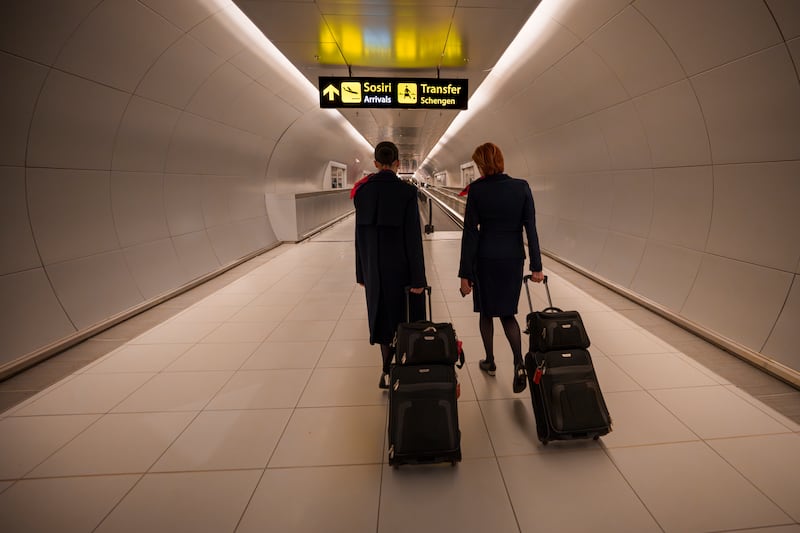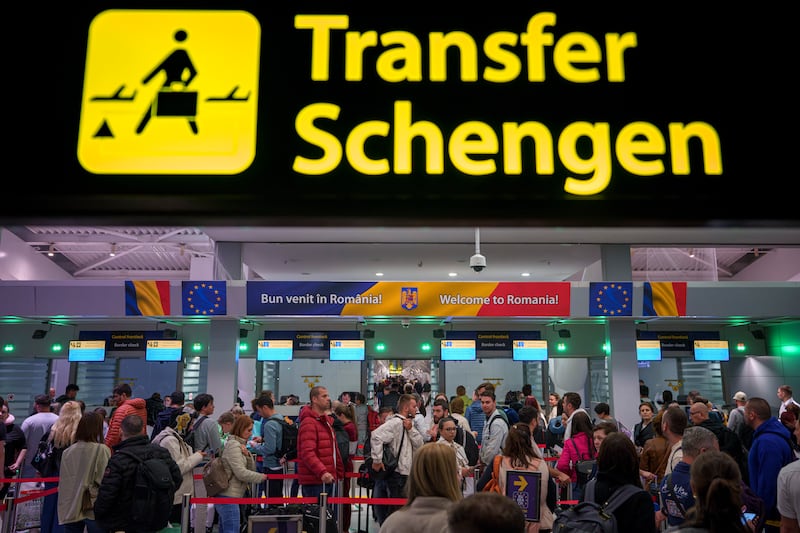Romania and Bulgaria have partially joined Europe’s identity check-free travel zone, marking a new step in the two countries’ integration with the European Union.
After years of negotiations to join the so-called Schengen area, there is now free access for travellers arriving by air or sea. Land border checks will remain in place, however, due to opposition primarily from Austria, which has long blocked their bid over illegal migration concerns.
EU Commission President Ursula von der Leyen hailed the change as a “huge success for both countries” and a “historic moment” for what is the world’s largest free travel zone.

The Schengen area was established in 1985 and before Bulgaria and Romania’s admission, it was comprised of 23 of the 27 EU member countries, along with Switzerland, Norway, Iceland and Liechtenstein. Around 3.5 million people cross an internal border each day.
Austria vetoed Romania and Bulgaria’s admission into the Schengen zone at the end of 2022 but allowed Croatia full accession. Bulgaria and Romania joined the EU in 2007 and Croatia in 2013.
Siegfried Muresan, a Romanian member of the European Parliament, said Sunday’s move is “an important first step” that will benefit millions of travellers annually.
“Bulgaria and Romania have been fulfilling all criteria for joining the Schengen area for years – we are entitled to join with the terrestrial border as well,” he said, adding it “will offer additional arguments to the last EU member state that has been vetoing the full accession”.

Romanian Prime Minister Marcel Ciolacu called it a “well-deserved achievement” for Romania that he said will benefit citizens who can travel more easily and will bolster the economy.
“We have a clear and firmly assumed government plan for full accession to the Schengen area by the end of the year,” he added.
The European Commission has said for more than a decade that Romania and Bulgaria both meet the technical criteria for full accession, which requires unanimous support from their partners. Both countries have agreed to implement random security screening at airports and maritime borders to combat illegal migration and cross-border crime.
While lifting border controls on air and sea ports is expected to positively impact the tourism sector, members of the European Parliament have voiced concerns about long queues at the EU’s land borders and the impact it can have on trade in the bloc’s single market, as well as the health and safety of drivers.
Truck drivers are frequently stuck in miles-long queues at the borders of both Romania and Bulgaria. The Union of International Carriers in Bulgaria estimates delays cost the sector tens of millions each year.








